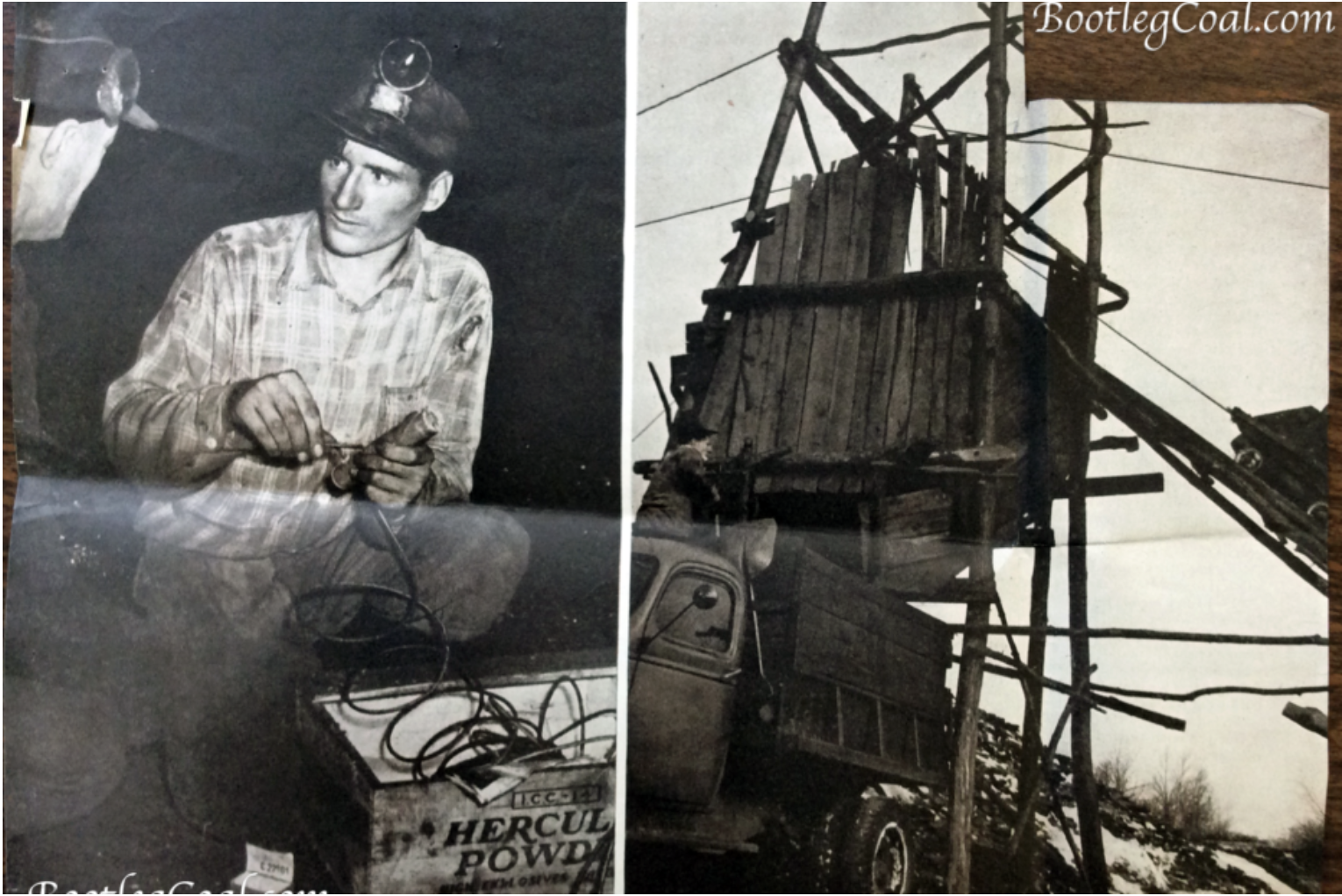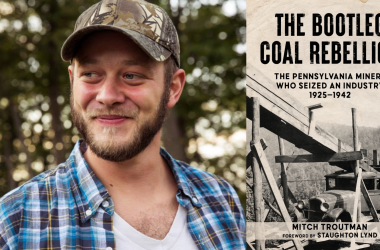By Mitch Troutman
BootlegCoal
Five+ years ago when I started this book, I thought my only connection to the bootleg miners was growing up around a few of them. Eventually I learned I was wrong, and I’m a descendent of more than one bootlegger. My PA Dutch pappy didn’t really know what I was talking about until I showed him some photos from the book. That took him down memory lane to the 1930s and early 1940s, when his older brother ran the winch at the family coal hole outside Gowen City, illegally dug and operated on land probably owned by Reading Anthracite.
Most people in Schuylkill and Northumberland Counties were involved with bootleg coal. When the mines closed, illegal mining became the main source of income in coal towns, alongside textile work. Most people were burning bootleg in their homes. Town halls, schools, fire stations, churches, and even the county jails were burning bootleg coal. That cash went straight into the local economy, bypassing Wall Street. Merchants, doctors, newspapers, and nearly every other business were paid with bootlegging coal money. Unfortunately, the US caught a collective case of amnesia after World War II—people were ashamed of their desperation during the Depression and were afraid of being linked to communists, so many families never learned what their ancestors had done to survive (except for those who returned and kept bootlegging—some til this day!)
Draft Cards
There was never any master list of coal bootleggers, of course, but by the mid-Depression they operated in broad daylight. So when the World War II draft rolled out, at least 500 people weren’t afraid to write “Independent Miner” as their occupation. You can find these draft cards at ancestry.com, which is unfortunately paywalled even though this is a collection of government records (you’ve got to pay the Mormons who run the site, sorry). This is also a good record for learning about someone’s physical health—a remarkable number of bootleggers were 5’8′ or taller but weighed only 140 lbs!
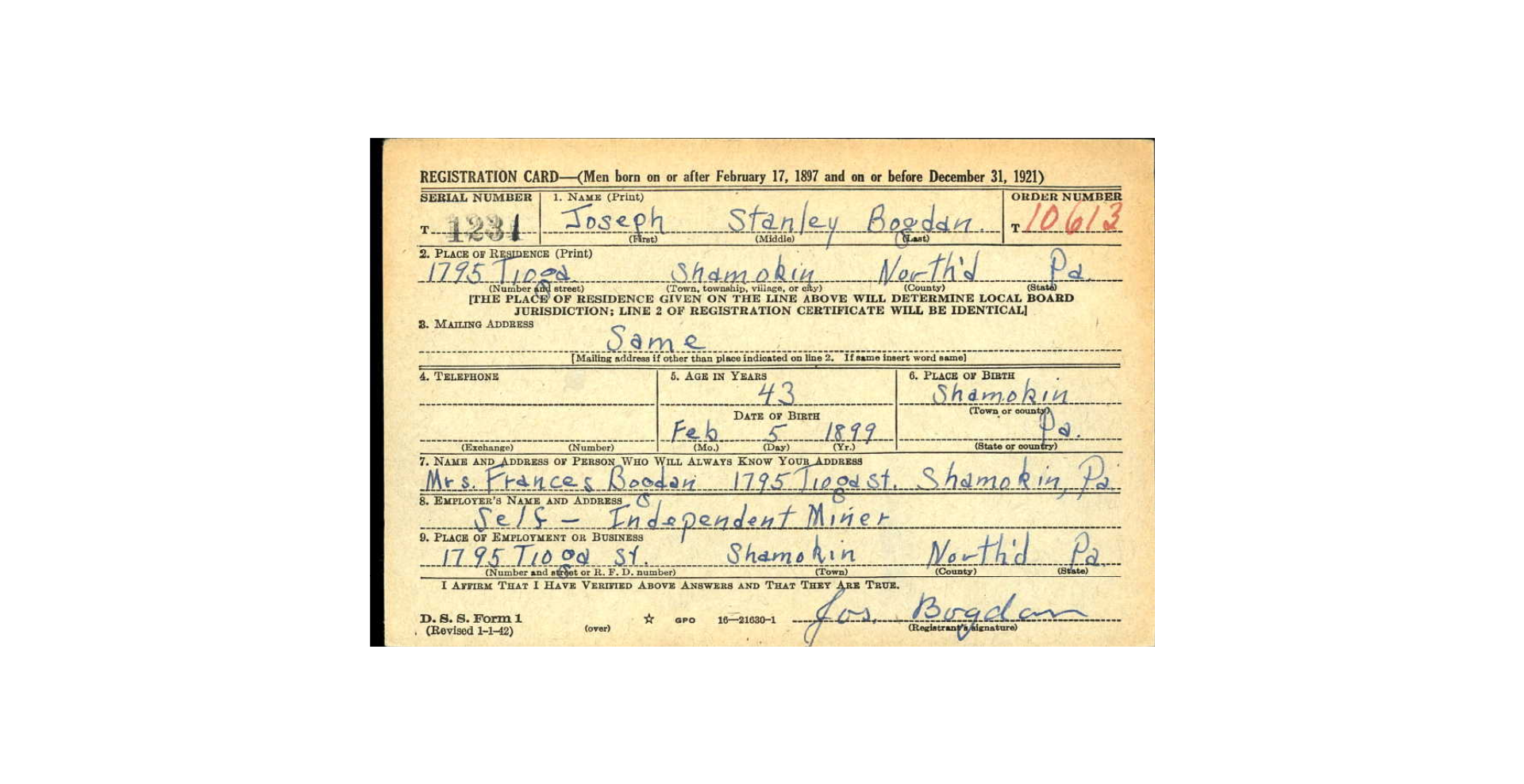
Accidents
Miners and truckers kept membership and dues rolls from the bootleggers’ unions, but sadly these were all destroyed to protect the guilty. What’s left, then, are the accident reports in local newspapers—typically only for severe or fatal accidents. Company miners were union and had incentive to report minor injuries, but bootleggers avoided the hospital unless there was no other choice—and even then some of them still didn’t go!
You can find local newspapers at your local library or historical society, although unless they are digitized you can’t search them. The best place to look is newspapers.com (requires a membership, or a membership to ancestry.com). The Shamokin News-Dispatch and Porterville Republican were the most thorough about reporting these, but you should also try searching more local papers. There were thousands of fatalities during the Depression. I suggest putting the person’s name in quotes (“Earl Humphreys”) to link the words together, and then add “bootleg” to your search. Alternatively, try “Independent Mine.”
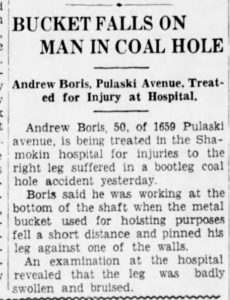
Arrest and court records may also exist, but none that I know of are in a searchable database, meaning you would need to know the exact record you are looking for in order to find it. Your best bet is to contact the county or municipality you believe the record is in to see if they have it archived.
Please share what you find!
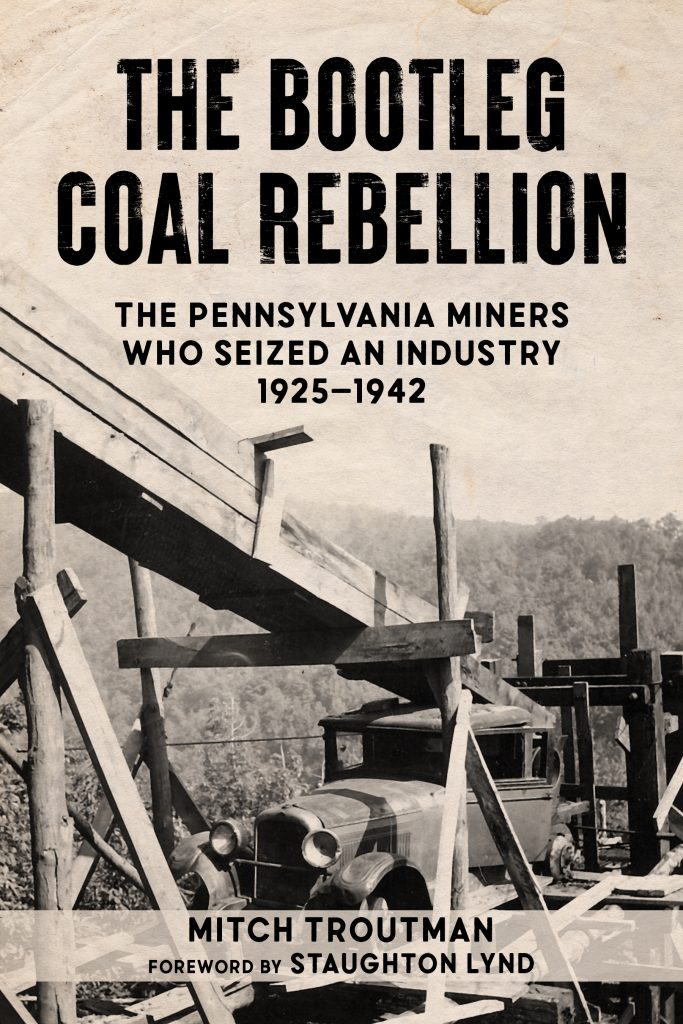
Mitch Troutman is a writer, educator, organizer, and jack-of-all-trades living in Central Pennsylvania. He is a direct descendent of bootleg coal miners and belongs to the group Anthracite Unite.

